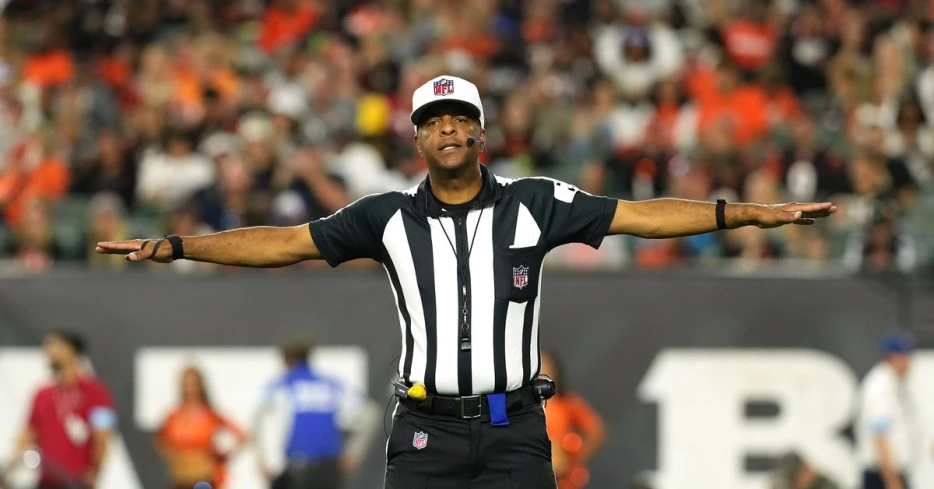
 Mile High Report
Mile High Report
Breaking down the inconsistent officiating from the week 9 matchup between the Denver Broncos and the Baltimore Ravens
In the Denver Broncos 41-10 loss to the Baltimore Ravens there were 15 accepted penalties and one challenge. Anyone watching this game could see that the officials played an inconsistent and big role in the outcome of the game.
The inconsistencies in personal fouls in this game frustrated me. Baron Browning was called for tripping (a personal foul) for an effort that after replay its not clear had any intention, and definitely had no impact. Kediron Smith was called for a personal foul for driving a Raven to the ground out of bounds, a level of roughness that certainly had no football motive and was obviously a good call. But when Tavius Robinson sacked Bo Nix by smashing his arm into Nix’s helmet, that was not a personal foul. Neither the rulebook nor reason would defend the application of personal foul penalties in this contest.
Often, too much is made of fast administration of football games. This is because officials moving fast and keeping the game going is a good proxy for lots of important traits. Officials who have obsessively memorized the rulebook, mechanics, definitions, and scenarios are able to do things extremely quickly, while also being right. The quick part improves viewer experience, which matters. But more importantly, often being fast is a very good proxy for being consistently correct. This game presented an interesting contrast, because the officials and especially Referee Adrian Hill, were very slow. There were three extremely long delays during the game: to re-spot the ball near the end of the game when Bo Nix went out of bounds, to re-spot the ball on a penalty at the end of a run which resulted in moving it from first and 10 at the 25 to first and 10 and the 24.5 yard lines, and for the double foul on the Baltimore punt that led to a re-kick. These in total added about five minutes to the broadcast, and the total impact was extremely low. This was decidedly unimpressive.
Every week I mention how the officials spot the ball. Its an important and underrated skill, and it was also the first officiating skill I got great at, so its easy for me to judge. Consistency is the most important part of spotting well, though accuracy is a close second. This game was reasonably accurate, but not consistent. Especially in high impact situations, Down Judge David Oliver and Line judge Greg Bradley had great spots. The problem was that in lower impact situations, they consistently spotted the ball short. Denver’s first turnover on downs was a series of plays where they spotted the ball over a yard shy on the first down run, a yard shy on second down pass, and had good spots on both third and fourth down. The result should have been a first...